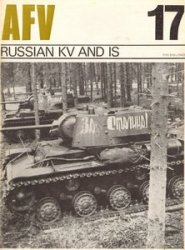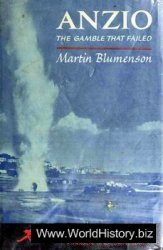French policies confirm the interplay between the East-West conflict and integration, especially during the late 1940s and early 1950s. In the French case, the clearest link is to be found in Paris’s enforced volte-face towards Germany between 1947 and 1950. The French had not wanted a powerful and sovereign German state to reappear after the Second World War. Their capacity to resist the Anglo-American drive to reconstitute a viable West German state was decisively reduced by the Cold War context, however. The breakdown of East-West relations both made it much more difficult for the French to join forces with Moscow in arguments over Germany and emphasised French dependence on American financial help. The fact that the French military campaign to cling onto its colonies in Indochina was being bankrolled by Washington - for Cold War reasons - only weakened the French position further. By the late 1940s, the French thus had no option but to accept the birth of the Federal Republic. And it was in order to accommodate this defeat that France would resort to European integration and launch the Schuman Plan. At a very basic level, France’s turn to Europe - a policy innovation that was to remain fundamental to French foreign policy for decades to come - was thus Cold War-inspired, despite the seemingly economic nature of the first European institutions created. The subsequent EDC project only confirms this argument.
The Cold War context, and the way in which the possession of nuclear weapons became one of the key symbols of status in the East-West confrontation, also helps explain initial French enthusiasm for the Euratom project. This mattered greatly for the overall advance ofEuropean integration because without the lure of the proposed European atomic energy community, it is highly unlikely that France would have participated in the discussions which were eventually to culminate in the 1957 Treaties of Rome and the launch of the EEC. Euratom would, of course, have been primarily concerned with the civilian uses of nuclear power. The French were well aware, however, that advances in their understanding of peaceful nuclear power generation would also have positive effects on their parallel effort to develop atomic weaponry. European money and expertise - not to mention the substantial American assistance that Euratom at one stage looked likely to enjoy - could therefore be of benefit in France’s quest to become a nuclear power. The French decision to resume discussions about far-reaching co-operation with their European partners so soon after the humiliating parliamentary rejection of the EDC had much to do with their ambition to regain a position of influence within a Cold War world.
The interconnections between the Cold War and French European policy continued after 1958 and the return to power of Charles de Gaulle. The general’s dislike of 'integration’ spanned both NATO and the EEC. He deeply mistrusted the role of the United States and of American allies, like Monnet, in the genesis of European integration. He also regularly attributed to American interference any incident in which his partners objected to French European priorities. Those German politicians who opposed his desires were for instance dismissed as 'the Americans’ men’.259 And he seems to have regarded the closeness of ties between the European Commission and the US government as further evidence of its unsuitability to hold any real power. The structures of European integration hence needed to be transformed, in de Gaulle’s eyes, just as much as those of Atlantic military co-operation. The result was the double crisis of 1965 to 1966 when the French president engaged in a seven-month boycott ofthe EEC, followed almost at once by his unilateral decision to withdraw his country from NATO’s integrated military command.
Paradoxically, though, the results of his systematic campaign against Western orthodoxies highlight important differences between Atlantic co-operation and European integration. In the former, France was able to assume a semi-detached position, protected by the Atlantic alliance but limited in its engagement with NATO activities. Its half-membership neither seriously undermined the strength of NATO nor had any real adverse effect on French security. Within the EEC, by contrast, the much greater centrality ofthe French meant that the boycott soon led to a situation in which both Gaullist France and its partners were confronted with a choice between accepting serious and possibly fatal damage to the Community system or finding a compromise that would allow their co-operation to resume. Each chose to give ground, thus protecting the multiple national interests which all of the member states had tied up in the integration process. France’s need of the EEC and the EEC’s need of France stood in stark contrast to France’s relatively marginal position within the Atlantic alliance.
Intriguingly, this last reality demonstrates how European integration could affect the Cold War rather than vice versa. For some of France’s more conventionally Atlanticist European partners appear to have concluded that they needed to be relatively accommodating towards French requests within an EEC context so as to avoid a situation in which Gaullist France drifted too far away from its Western moorings.260 The very real economic rewards France gained from the EEC could, in other words, be used to deter de Gaulle from taking any irrevocable step in his intermittent flirtation with the Soviet Union and the Eastern bloc.261 The notion of Westbindung, originally conceived as the use of European integration to tie West Germany solidly to the West, could hence be seen as applying to Gaullist France in the 1960s as much as to the Federal Republic.




 World History
World History









